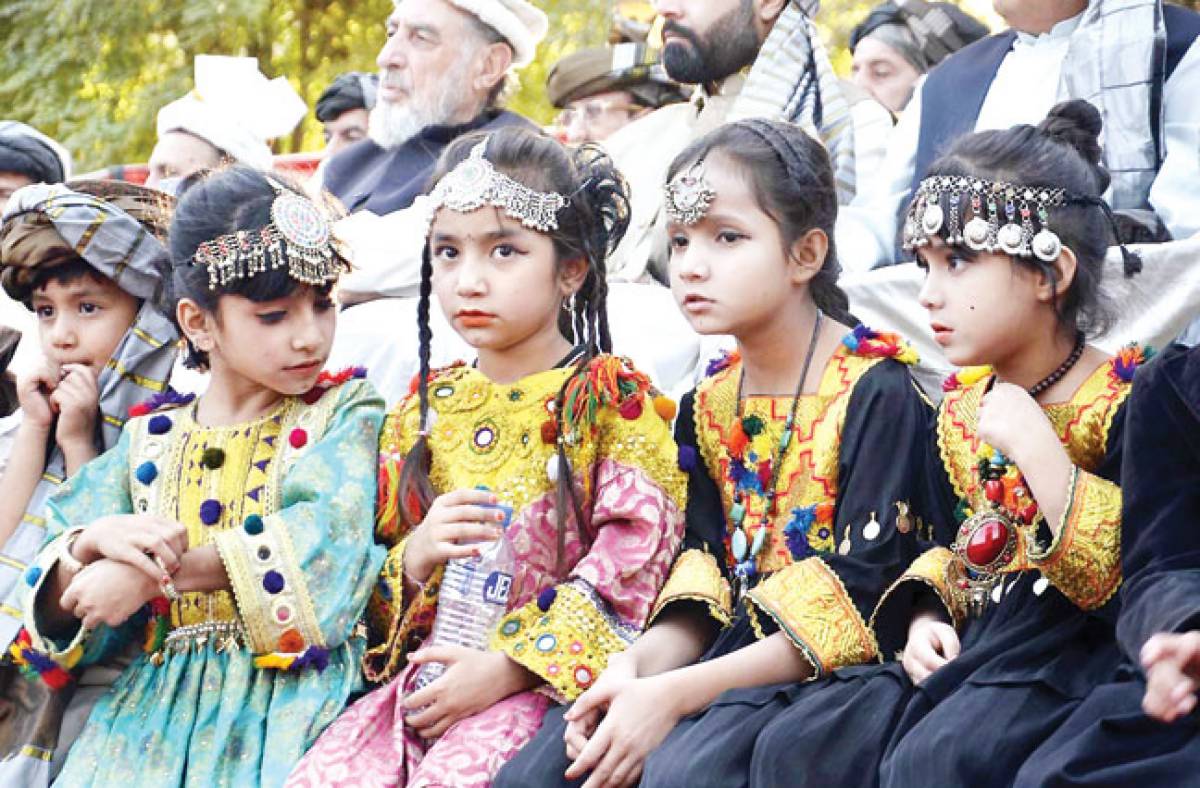The Pashtoon culture in Balochistan is unique and exhibits its own distinct characteristics, while also sharing some cultural traits with Pashtoons residing in other regions.
Language:
Pashto, an ancient Indo-European language, serves as the primary language of the Pashtoon community in Balochistan. Pashto has a rich oral and literary tradition, with poets and scholars contributing significantly to its development and preservation.
Dress and Attire:
Pashtoon attire in Balochistan reflects their cultural identity. Traditional clothing for men includes the khet partug (a loose-fitting shirt) and shalwar (baggy pants), while women often wear brightly colored dresses like the perahan tunban. Pashtoon men may also wear a traditional turban or cap, known as a pakol.
Social Structure and Tribalism:
The Pashtoon culture in Balochistan places a strong emphasis on tribal customs and traditions. Pashtoons are organized into various tribes, with each tribe having its own unique customs, code of conduct (Pashtunwali), and social structure. Loyalty to the tribe and respect for tribal elders are considered essential values.
Hospitality and Pashtunwali:
Pashtoons in Balochistan adhere to the Pashtunwali, a traditional code of conduct that governs their behavior and interactions. This code emphasizes hospitality, generosity, and protection of guests. Pashtoons are known for their warm hospitality, and guests are treated with utmost respect and care.
Music and Dance:
Pashtoon culture is rich in music and dance. Traditional Pashto music, known as “Tappa,” incorporates soulful melodies and poetic lyrics. Instruments such as the rubab (a lute-like instrument), tabla (drums), and harmonium are commonly used. Traditional Pashtoon dances, such as the Attan, are an integral part of cultural celebrations and weddings.
Cuisine:
Pashtoon cuisine in Balochistan is renowned for its flavorful dishes. Staple foods include rice, meat (particularly lamb and chicken), and a variety of spices. Popular Pashtoon dishes include kabuli pulao (rice cooked with meat and spices), chapli kebab (minced meat patties), and mantu (steamed dumplings).
Religious Practices:
The majority of Pashtoons in Balochistan adhere to Islam, with Sunni Islam being the dominant sect. Islamic practices and traditions play a significant role in shaping the Pashtoon culture, including daily prayers, fasting during Ramadan, and celebrating Islamic festivals.
In conclusion, the Pashtoon culture in Balochistan reflects a blend of historical traditions, tribal customs, and Islamic influences. Their language, dress, social structure, hospitality, music, and cuisine all contribute to the vibrant tapestry of the region. The Pashtoons’ unique cultural identity adds to the diverse fabric of Balochistan’s cultural heritage, fostering a sense of pride and solidarity among the community.

